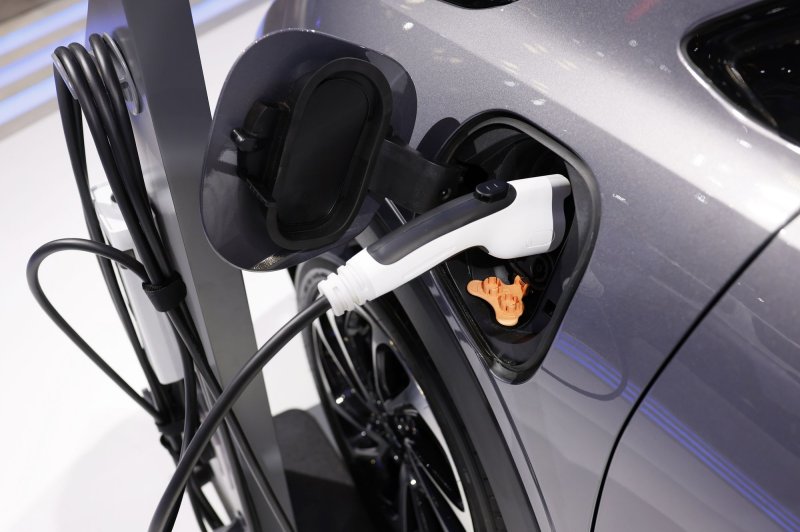1 of 2 | Two businesses focused on EV charging announced a partnership to expand the charging network at commercial buildings and apartment complexes in Canada. File photo by John Angelillo/UPI |
License Photo
Jan. 23 (UPI) -- Toronto-based charging provider SWTCH said Monday it made its first major provincial move in Quebec, helping the government reach a goal of getting gas-powered vehicles off the road.
SWTCH said it shook hands with Bectrol, an electric vehicle charging company in Quebec, to establish charging networks for those people living in multiunit properties and for commercial properties in the province.
"SWTCH's technology is completely customizable and easy to install, without locking users into one specific hardware manufacturer or charging network," said Jean Nicolas Dupéré, a strategic co-director at Bectrol. "We look forward to electrifying Quebec together, while sharing our connections with manufacturers and electrical contractors."
Most of the electric vehicles on the road in Canada are in Quebec, which three years ago announced plans before the federal government did to end the sale of gas-powered vehicles after 2035. Nationwide incentives were introduced in 2021 in the form of tax credits toward the purchase of a new EV.
National regulations get tighter on EVs, with mandates requiring 20% of all new passenger vehicles to run on electric power by 2025, 60% by 2030 and 100% by 2035.
On the other side of the country, national leaders were on hand in Vancouver to announce a $209,000 USD ($280,000 CAD) investment to install 75 chargers at multiunit buildings in the city.
"We're making electric vehicles more affordable and charging more accessible where Canadians live, work and play," Jonathan Wilkinson, Canada's minister of natural resources, said. "Investing in more EV chargers, like the ones announced today in Vancouver, B.C., will put more Canadians in the driver's seat on the road to a net-zero future and help achieve our climate goals."
The Canadian government has invested nearly $1 billion USD since 2016 to make zero-emission EVs more affordable for its constituents.
Global sales of electric vehicles doubled in 2021 and were expected to account for 13% of all car sales by the end of 2022.















